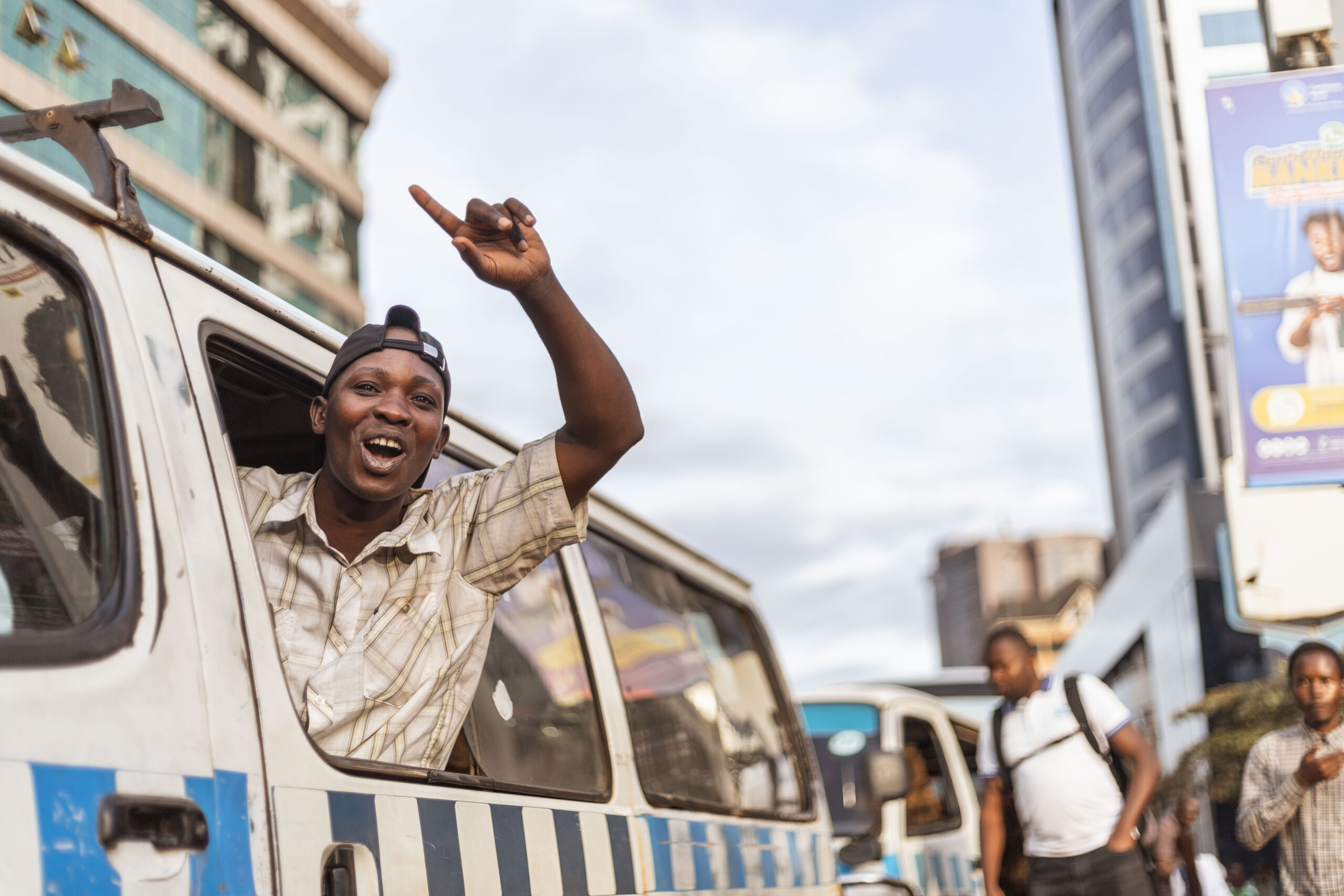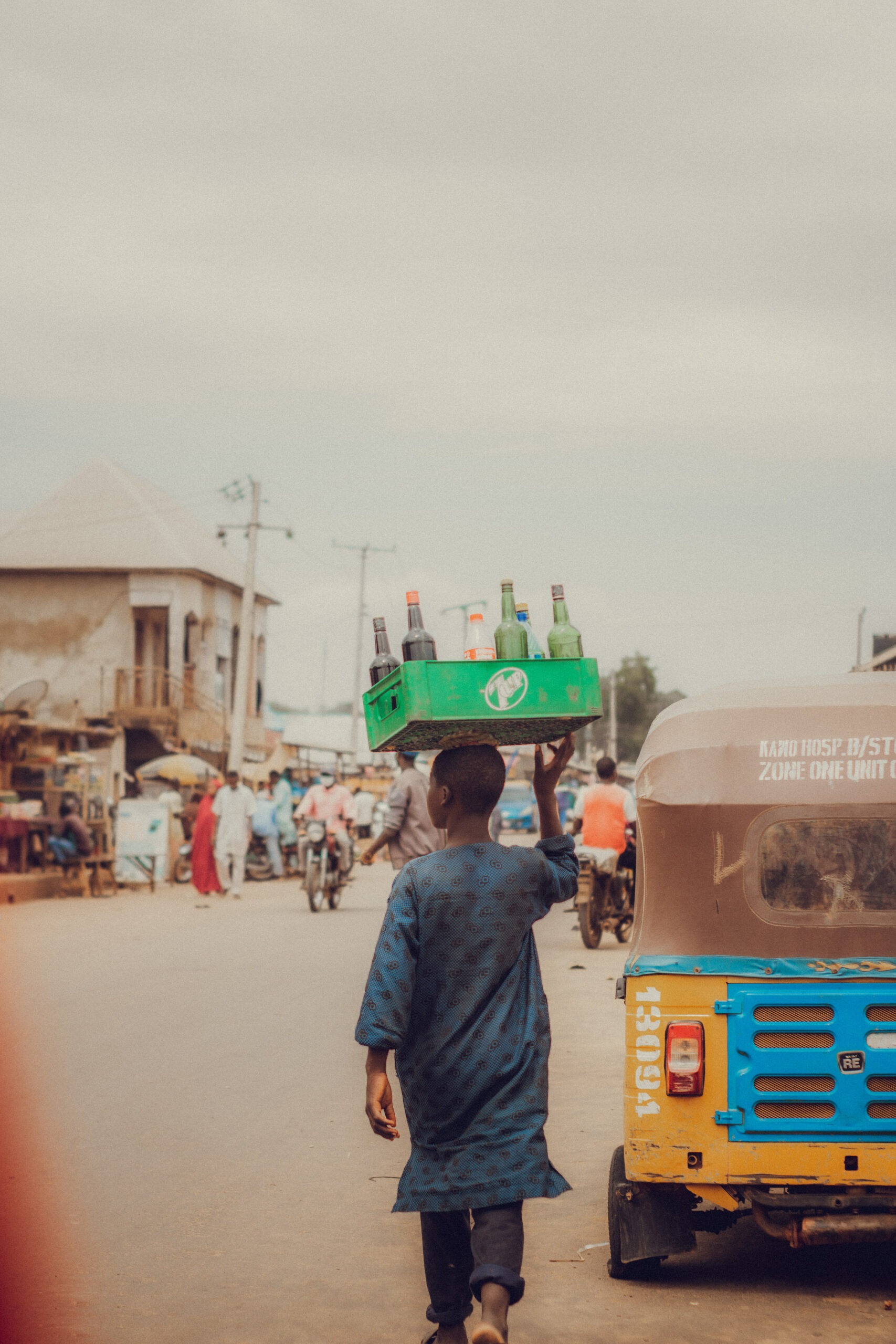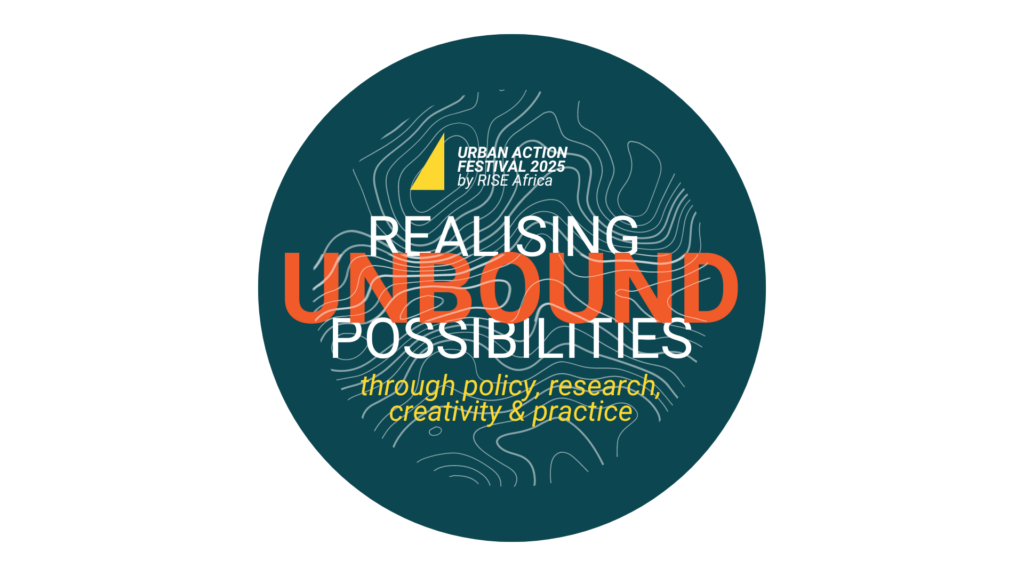4 June 2024
Solve, fail, reflect: Insights from RISE Africa 2024 Action Festival



“The solutions rest with us; we just need to find the bridge,” shared Gertrude Rose Gamwera, Secretary General, EALGA, in the opening session of the RISE Africa 2024 Action Festival. This provocation set the tone for three days of sessions focused on inspiring a shift towards a solutions-oriented mindset. This year’s theme, “SOLUTIONS ONLY [failures also],” aimed to highlight the innovative, boundary-pushing work driving change across the continent, demonstrating that we should be solutions oriented in our approach to urban development, rather than fixating on challenges – while also acknowledging these failures as fertile ground for better solutions. The festival celebrated and called for scaling these solutions, merging theory, practice, and storytelling. Attendees shared their successes and lessons learned from unexpected challenges, collectively illuminating paths to equitable, sustainable, and vibrant African cities.
The RISE Africa Action Festival holds a special place on the pan-African events calendar, renowned for its diversity of voices, both geographically and thematically. Attendees often remark on the eclectic mix of perspectives, under the umbrellas of “thinkers, doers, and enablers,” that could include a lawyer from Lagos, an artist from Tunis, educator from Cape Town, a local government official from Lusaka, and an entrepreneur from Kisumu, all sharing the same stage. Amidst this diversity, the 2024 festival further validated a number of core RISE Africa tenets: the importance of varied perspectives and voices in any intervention, the need for more design-thinking in addressing challenges, the role of creative expression as part of shifting narratives and enabling shared sense-making, and the significance of regional connections and mutual learning across African cities. The rich tapestry of insights that emerged from the festival underscores its role in fostering innovative, inclusive, and collaborative urban development across the continent.
The RISE Africa 2024 Action Festival highlighted the transformative power of uniting diverse voices from across the continent to collaborate and co-develop ideas for action. This year’s programme, featuring 23 sessions, drew over 1,200 individuals across more than 360 cities worldwide. While the festival consistently attracts diverse participants from academia, think tanks, NGOs, CSOs, the private sector, and research institutions, this year saw a larger cohort of government representation than ever before. This underscores the crucial role such events play in uniting diverse voices to drive action towards a sustainable urban future for our continent.
Photographs – Top: Benjamin Nsubuga; Right: Yenyehk Gil Dachomo

SOLVE
Day one began with an exploration into solutions, featuring small businesses, innovators, and entrepreneurs from across the continent tackling urban challenges in the built environment and urban form. The opening session highlighted their innovative and exciting work within their respective cities. As Benjamin Kollenberg, director of Urban Think Tank Empower, noted, “Perfect is the enemy of the good. We can’t strive to fix something passively; we need to do it actively.”
A core theme that emerged from this session, and would continue to be emphasised throughout the festival, was the importance of the human scale, community buy-in, and co-creation. “We often see marginalised people as recipients of innovation – in what way can we centre their creativity?” asked Nthakoana Maema, CEO of Oribi, during a session on open innovation in urban food systems.
Additional insights from day one included the importance of capturing individual stories and experiences of the city to inform better urban planning. This can be creatively achieved through photography. “We need to bridge the gap between policymakers and photographers,” said Seth Kriger, curator and urban researcher. “Photography tells the stories of not just where we are on the continent, but where we can go.”
[fail]
The second day of the RISE Africa 2024 Action Festival delved into a topic often avoided: failures. By reframing our understanding of failures, we can better harness their lessons and move forward with greater insight. Embracing failures as part of our journey allows us to innovate and improve. As Funmi Adeniyi, Manager of Rights-Based Approaches at ICLEI Africa, aptly stated, “Failure is ok; it’s built into finding solutions and is a part of the general human condition.” Recognising this truth empowers us to view setbacks as valuable opportunities for growth and progress, rather than obstacles. Digital Creator Klevar Ocholi echoed this sentiment, stating, “Failure can open your mind to better realities, but only if you let it… In the face of failure, the mind stretches… Fail fast, fail forward”. Artist Erin Sweeney added, “Failure in creativity and failure in art don’t exist. The failure in creativity is the failure to act on creativity.” If we can destigmatise failure, we can more effectively address the root causes of problems rather than merely their consequences.
Creating an enabling environment is crucial for “failing forward,” a key point raised in the Innovative Ecosystems session. Simon Höher, Systems Change Lead at Dark Matter, advised, “Don’t just look for innovative solutions; look for the enabling factors that are or aren’t in place and strengthen these.” Sometimes, what we consider failures can be transformed into solutions with the right support. Miles Kubheka, CEO of Wakanda Food Accelerator, remarked, “Don’t touch informal economies or sectors because they fundamentally work – the question is how do you scale them up and reduce friction.”
Day two also underscored the importance of local knowledge and indigenous ways of knowing, alongside the fundamental question of who gets to speculate on our imagined futures. In the Just Transitions session, Lauren Hermanus, Founding Director of Southern Transitions, emphasised, “When we envision our future, we need to strive for a balance between evidence-based planning and speculative planning. Once we understand that all policy-making involves some degree of speculation, we can ask who gets to speculate. Who has the right to imagine our futures? We need to reclaim this right from those who are swooping in from the outside.” Investing in meaningful partnerships that elevate contextual, place-based knowledge – and those who are the custodians of this knowledge – while benefiting from the diverse array of concepts and experiences from around the world, can be a foundation for unlocking the imaginaries we need.
REFLECT
“We need to be intentional about showing off our solutions, intentional about how we observe our failures, and we must also be intentional about how we reflect,” urged festival curator Vida Madighi-Oghu. In this spirit, the final day of the festival invited us to pause and reflect—a practice that we tend to overlook in the urgency to “drive progress”. As spoken word artist Nora Anyidoho asserted, “To reflect is to look back so we can move forward.” In the sustainability space, where things often feel urgent, it’s crucial to examine where we have been and where we are, to truly understand where we are going and how to get there.
Reflection requires expression and understanding, achievable only by incorporating different perspectives and encouraging varied ways of knowing. The Decade Retrospective session of the Urban Natural Assets programme looked at practical tools for co-creating with communities, sharing methodologies used over the project’s lifespan to elicit multiple viewpoints. “Inclusivity needs to be a part of not only planning but also implementation and monitoring project processes,” reminded Isaac Luwanga Mugumbule, Head of Landscaping at Kampala Capital City Authority. The key role that CSOs play in advocating for community voices to be heard within governance was further underscored in the session on Policy Perspectives.
The final session of day three was a debrief, discussing the key themes and insights that emerged. Regarding solutions, Bongiwe Simka, Professional Officer in urban nature at ICLEI Africa, shared, “There is no particular solution or approach but rather the way in which we approach solutions—there is a need for curiosity. Curiosity ignites solutions and breeds great solutions.” On failures, Eddie Jjembe of the Red Cross Crescent Climate Centre reminded us that “It will take time, but this could be the beginning of the conversation where we acknowledge the need to talk about failure in openness.” As a final closing reflection, Rosie Downey, Network and Process Facilitator of Digital Weavers, left us with this thought: “I think where we don’t get creative enough is what to do with the failures and the lessons learnt. How do we use them to generate further insights but on a collective level? Collective synthesis on failures and insights at a network level could get us closer to finding interesting and new solutions.”
Toward 2025
Building on the growth and success of its previous four iterations, RISE Africa is set to reach new heights with an exciting announcement: the 2025 festival will be held in person for the first time. This milestone marks a significant step forward in fostering direct, face-to-face collaboration and innovation, further amplifying the festival’s impact on sustainable urban development across the continent. Further details about the in person festival, which will amplify the energy established in the virtual space, forging new connections, partnerships, ideas, and solutions, will be announced soon. RISE Africa 2025 Action Festival seeks to propel us forward with renewed focus, support, and learnings as we approach the last five years of the SDGs. The 2025 festival’s theme, “Realising Unbound Possibilities: Through policy, research, creativity & practice,” embodies this ambition. It aims to bring together creative, action-oriented, solutions-focused thinkers, doers, and enablers, fostering collaboration and taking decisive steps toward shaping our future cities.



